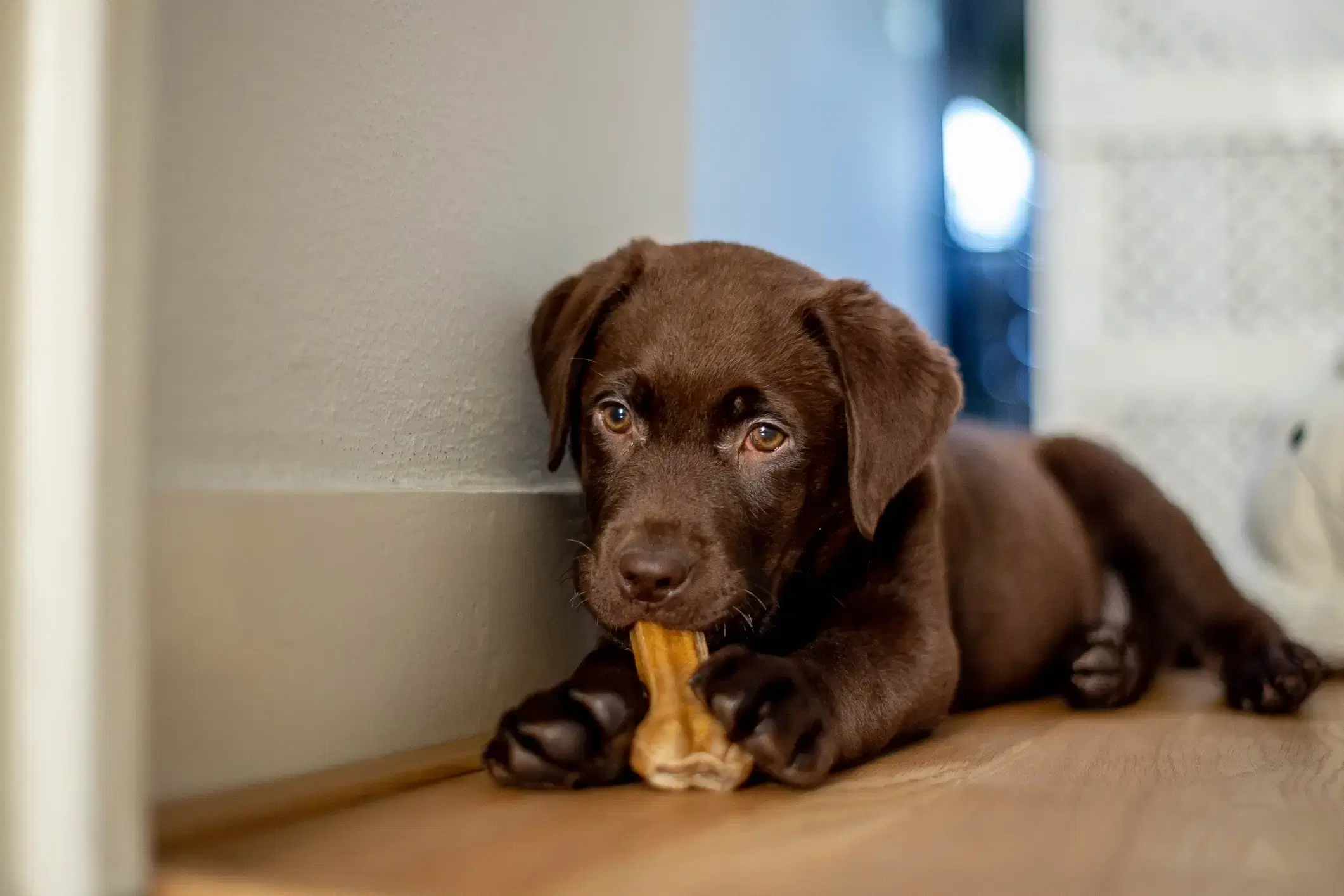Your Guide to Potty Training a Puppy
Getting a puppy is always an exciting experience and with their prancing little paws and floppy ears, it's no wonder pet parents can never get enough of their puppies! As any pet parent knows, while watching your furry bundle of joy playing excitedly at home can be one of the best feelings, getting a new puppy comes with its fair share of work. Getting a new puppy means putting time into socializing, leash training, crate training your puppy, and puppy-proofing your home.
One aspect that many pet parents dread - and struggle with - is potty training. It’s not an easy task to train your pup to poop and pee in the right places and at the right times. Potty training takes a lot of time and effort - not to mention a lot of patience and commitment!
How Do I Potty Train a Puppy?
First things first, establish a routine. Your puppy may rebel a bit (obviously, duh!), but just like a child, a schedule will teach your furry baby that there's a time for everything - time to eat, play, sleep, and do their morning (or evening!) business.
Here’s a rule of thumb to help make your life easier - typically your pup can hold its bladder one hour for every month old they are. This means if your pup is a month old, it’s likely to be able to hold its bladder for an hour, tops. Don’t make them wait any longer or they might have an accident. Here’s how you can do it -
Take your pup outside frequently: Take your puppy outside to potty immediately after they eat, drink, wake up from a nap, or after a play session.
Pick a spot outside: Each time you take your puppy outside to potty put them on a leash and lead them to the same spot. As your pup pees or poops, use a specific phrase or word, they will start to associate that word with using the bathroom, and - eventually you’ll be able to use it to remind them to go potty. Trust us, it’s going to be worth the effort!
Give a little treat: Rewards work brilliantly! Every time your pup relieves themselves outside the house, give them a treat or two. Just make sure that they're finished before giving it to them. Over time it’ll help to make them remember that going outside when nature calls is not only expected from them but also a pleasant experience!
Maintain a regular feeding schedule: If your pup doesn’t eat in a timely fashion, then your pup isn’t going to relieve themselves in a timely fashion. Make sure that you feed your pup at the same time every day so that their potty schedule also becomes regular. It’ll make it easier for both of you! If you're not sure what to feed your puppy, here are a few tips on how to pick the best puppy food.
Pick up your pup’s water dish a few hours before bedtime: This is so important! It’ll drastically reduce the likelihood of your puppy needing to go and pee outside in the wee hours of the night. It’ll also help to fix their sleeping schedule!
What if it Doesn't Work?
Well, it will! Seriously, don’t sweat it. Yes, it’s going to take a little time for your pup to get used to their new schedule, but it’s so worth it! It’s a normal part of potty training to have a few accidents here and there. Here’s what you can do instead of freaking out -
If your pup has relieved itself in the house - it’s okay! It’s all part of the learning process. Your puppy will mess up sometimes. If an accident happens, immediately take your pup to its spot outside. It’ll reinforce that hey - it’s okay that it happened but you still need to go outside whenever you feel the need to go.
Don’t punish your puppy for soiling the house. Just clean up the area that has been soiled; don't make your canine baby feel bad about it. Punishments may only make your pup feel scared of potty time and you - which can do more harm than good for your relationship and your potty training efforts.
Clean the soiled area thoroughly. Not just because it’s hygienic to clean it but also because if the area still smells like pee, they will naturally want to go there again.
Alternatively, you can also train your pup to do its business in a specific spot indoors so they know eventually where to go.
If you need to travel during the potty training duration of your pup, try to arrange for a neighbor or friend to take your pup for regular bathroom breaks. If you don’t find a friend then you can hire a professional dog walker or pet sitter to help keep your puppy on schedule.
We know that being a pet parent can be a difficult job. That's why Spot Pet Insurance wants to help make sure that you get all the educational resources you need to help care for your puppy. Find more puppy tips on our blog!

Creative manager by day, pet enthusiast all the time! After 19 years with my dog (hopefully he wins the award for oldest pet in the world), I enjoy spending my days brainstorming tail-wagging content, and sniffing out the latest trends in the pet world.
"How to Potty Train Puppies," American Kennel Club, https://www.akc.org/expert-advice/training/how-to-potty-train-a-puppy, Nov. 9, 2023.
"How to Potty Train Your Puppy or Dog," Humane Society, https://www.humanesociety.org/resources/how-potty-train-your-dog-or-puppy, accessed Jan. 30, 2024.
The information presented in this article is for educational and informational purposes only and does not constitute or substitute for the advice of your veterinarian.
*2024 and 2025 Spot Pet Insurance Services, LLC. claims data.












